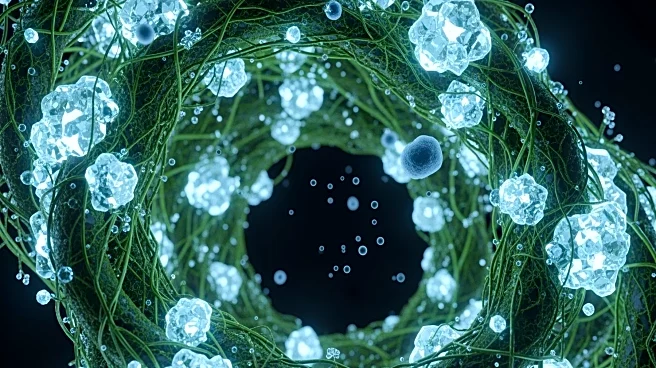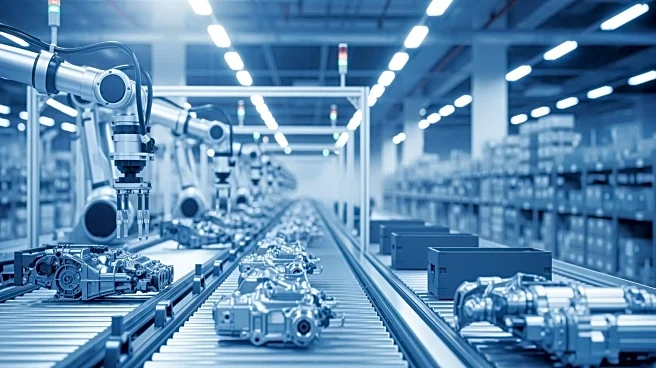What's Happening?
Researchers have developed engineered living materials (ELMs) using bacterial spores, which show promise for self-healing and sustainability. The study, led by Jeong-Joo Oh and colleagues, involves embedding
Bacillus spores within ELMs to create materials that can endure harsh environments and perform specific tasks. These materials could potentially replace fossil-based materials, offering applications in detecting disease biomarkers, catalyzing environmental pollutant breakdown, and functioning as self-healing composites. The research, published in Science Advances, highlights the programmable functionality of these materials, which can survive harsh conditions and awaken on command.
Why It's Important?
The development of ELMs with bacterial spores represents a significant advancement in sustainable materials technology. By potentially replacing fossil-based materials, these ELMs could contribute to reducing environmental impact and promoting sustainability. The ability to program these materials for specific tasks, such as self-repairing concrete, could revolutionize industries like construction and environmental management. This innovation also opens up possibilities for new applications in healthcare and environmental monitoring, providing a versatile tool for addressing various challenges.
What's Next?
Further research and development are needed to ensure the long-term stability and performance of these ELMs in real-world applications. The researchers aim to match the strength and durability of existing materials, paving the way for widespread adoption. As the technology progresses, it could lead to the replacement of unsustainable materials with living, self-sustaining alternatives, potentially transforming industries and contributing to environmental conservation efforts.
Beyond the Headlines
The ethical implications of using living materials in construction and other industries could spark discussions on bioengineering and sustainability. The ability to program materials for specific tasks raises questions about the control and regulation of such technologies, as well as their impact on traditional manufacturing processes.









